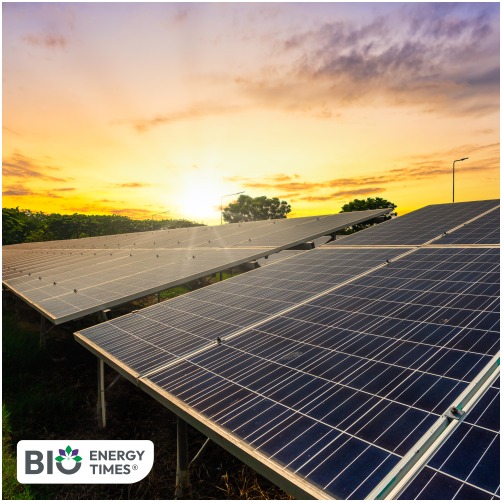India has achieved a major milestone in its renewable energy journey, with solar power now making up nearly 24% of the country’s total installed power capacity.
This development was highlighted at the Mercom Renewables Summit 2025, held on Thursday, where industry leaders and policymakers gathered to evaluate progress and outline future strategies for India’s clean energy transition.
Data shared by Mercom India Research revealed that, as of March 2025, India’s cumulative installed large-scale solar capacity stands at 89.7 GW. States such as Rajasthan, Gujarat, and Karnataka are at the forefront of this shift, each contributing more than 10,000 MW in solar installations.
A keynote address at the summit outlined the transformation in India’s energy mix over the past 15 years. Since 2010, additions to power capacity from coal have steadily declined, while solar energy has become the leading source of new capacity.
By the first quarter of 2025, renewable sources — including large hydropower — collectively represented 48.4% of India’s total installed power capacity. Solar energy alone accounted for 23.9%, followed by wind at 10.6%, large hydro at 10.2%, and other sources like biomass and small hydro making up the rest.
“This shift reflects India’s strong commitment to clean energy, enabled by forward-looking policies, declining technology costs, and increasing momentum around climate action,” said Raj Prabhu, Founder and CEO of Mercom Capital Group. He emphasized that India’s progress in renewables is crucial not just for its domestic goals, but for meeting global climate targets.
The summit also spotlighted India’s broader strategy, which includes expanding wind power, hydropower, and waste-to-energy initiatives alongside solar. However, coal still plays a significant role in the energy mix, indicating the need for a more assertive transition away from fossil fuels.
Speakers at the event stressed the importance of sustained investment, modernization of grid infrastructure, and policy reforms to maintain momentum. With international climate deadlines approaching, India’s renewable energy trajectory remains central to both national and global climate objectives.















